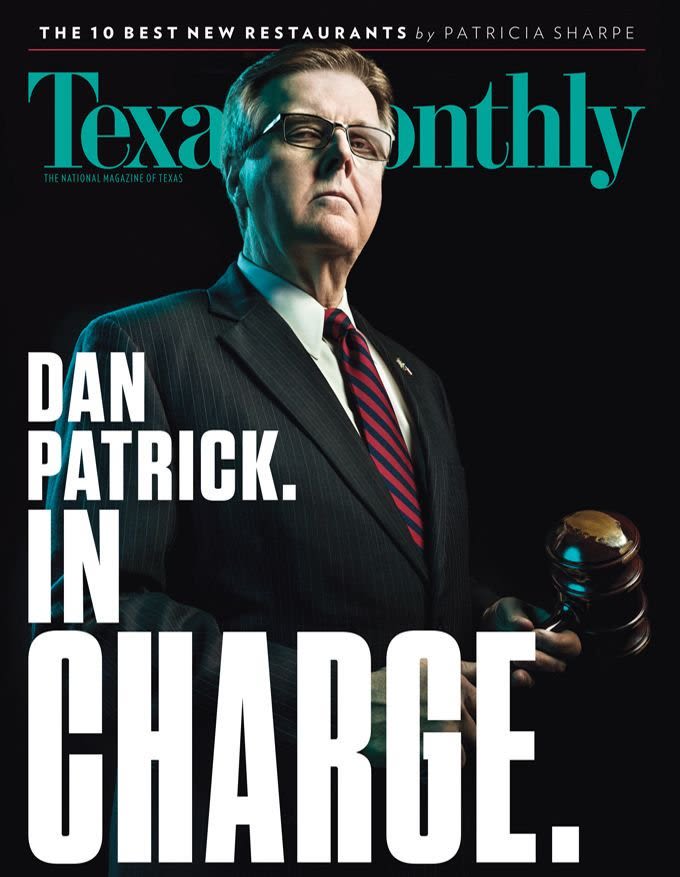I started this and meant to add a prelude of sorts. Never happened, so we begin as I did: in media res.
According to the Vox Article, Ansari and “Grace” were sitting naked on the couch, he having agreed to "slow down,” when he pointed to his penis and she understood his meaning, and gave him a blow job. She didn’t feel good about this, she now says, and yet she did it.
So how does one signal “affirmative consent” in this situation? How much more affirmative can you be than to take a stranger’s penis into your mouth? Or if it’s not affirmative because of her private feelings about the act, which I’m not dismissing, how is the other party to know? How, in other words, does one evaluate “affirmative consent”? I suppose if she withdrew and he forced her head back down, that would indicate a lack of affirmative consent (and probably consent, for that matter). But that didn’t happen; consent was only withdrawn the morning after, or maybe several mornings after. Even if we establish affirmative consent as the gold standard for all sexual contact, how do we ever determine when it was given, and when it was validly withdrawn?
There was a case, reported widely at the time (my archives are too poorly indexed, i.e., not at all, to retrieve it) of two college students who slept together one night, drunk, if I recall correctly. It didn’t happen again and nothing was said about it until the next semester, when the woman accused the man of sexual assault. I don’t know if he was dismissed from the college or simply became a pariah labelled as a rapist by students on campus (which would constitute libel per se, but that’s another matter), but there were repercussions. And why and when did the student withdraw her consent? When her mother read the student’s diary about the sexual encounter, and confronted her virginal daughter and persuaded her to charge the man with rape.
Was that a case for “affirmative consent”? And how, again, would you determine it was given, or withheld? And that "you" includes us; if we are asked to judge after the fact, we are not only put in the place of the actors, we are put above them and asked to approve or disapprove.
“Affirmative consent” doesn’t move us any further toward clarity than “ ‘No’ means ‘no.’ “ Yes, in matters of sex, ‘no’ should mean ‘no.’ That’s what consent is all about. But is affirmative consent a stronger ‘yes’ than merely saying ‘yes’, or than agreeing to the sexual contact wordlessly? If it is, how do you make the distinction, and how do you make the distinction clear in every case of sexual contact between two persons?
The sad fact is, we’re back to the power issue. Rape is not about sexual desire, it’s about power differential. That’s what I was taught in high school, especially as a response to defenses like “she was asking for it” or “her skirt was too short” or “she shouldn’t have been in that neighborhood at that time of night.” Rape is not about an uncontrollable urge to fuck; it’s about power. And all arguments about “affirmative consent” do is shift that power differential to the other party. Which is fine, if you’re the other party; but it doesn’t solve the problem of rape, nor of sex between consenting adults who can’t even agree on what “consenting” means.
This is not just an issue between strangers, like the first date nightmare of Ansari and “Grace.” What about consent in marriage, or in a long term non-marital relationship? If the wife says “No” and the husband does nothing more than persist, is that non-consensual sex that makes him a rapist? (the distinction between the words “rape” and “sexual assault” is pretty much that the former sounds worse than the latter.). Is the wife seeking marital concordance, or is she being pressured against her will into accepting an assault (i.e., the tort of offensive contact)? Yes, it can be forced sex (or rape, if you prefer). That can happen, even in marriage. Would “affirmative consent” make it better, or let him off the hook? How? Isn’t “affirmative consent” somehow more consensual than “regular” consent? But how? What do you do to show the former, not just the latter? If the former is shown by simply saying “all right, all right, all right” at every shift or movement from foreplay to penetration to ejaculation, followed by “Thank God that’s over!”, did that last phrase destroy the affirmation? I mean, nobody likes to endure bad or unwanted sex, but how finely are we going to slice this, how deeply are we going to invade the bedroom to decide, as a society, if we approve of what two people just did to each other?
I don’t raise this as a way of calling a halt to the conversation, I raise it as a way of asking that we pay attention to what we are asking for. When I was in college, all of my friends were horny (the guys, anyway), and few of the women were willing (at least on the first date). Which is not to say nobody had sex, but that few people ran around complaining that they had slept with somebody. Oh, maybe they told their friends it was a terrible night, but they didn’t tell the whole campus. Now, we want to involve the whole world; well, at least anonymously. “Grace” tells the story of her bad date with a celebrity, which is pretty much the fodder of celebrity gossip since Hollywood created movie “stars.” And society has always weighed in on what celebrities do in their spare time, and who they do it with, and whether or not they are being good role models (i.e., if they should do it).
This is as old as Adam and Eve, in other words, when they figured out they should find some fig leaves. But what improvement are we making by raising the standard of proof to one that shifts the burden from the accuser to the accused? One that really can’t be proven by any measure except what one party to the action says they thought, and we are asked to ignore what they did? What improvement are we making by deciding the complaint should not be among friends, but an issue taken up by society at large? College students want the college administration to redress their grievances; women on bad dates want....well, what, exactly? Affirmation that the bad date was not their fault?
Which, I know, is an ugly way of putting it, too; but I'm really left wondering why you tell this story, even anonymously, to
tout le internet. What result are you looking for? Societal affirmation? Punishment? Identification with a popular hashtag? Part of the issue here is that issue of involving society at large: why are we being engaged in this? What are we being asked to do, and why are we being asked to do it? What is our role here?
I don't ask in order to stop the discussion; I ask because I want to know what we, who are being involved in this, are expected to do about it? Is the only possible response opprobrium for Ansari's reported actions, or a reaction against "Grace" for reporting this? Maybe the more fundamental question should be asked: why do we care? Because the answer to that question is the answer to the question: whom should we punish?
This raises, I think, an important and difficult question about what we’re doing as a society when we punish. Do we want to use punishment — be it in the criminal courts or through processes at colleges or companies — to create new social rules about what’s right and what’s wrong before there’s a clear understanding of, and something approaching an agreement upon, the new norms?
Why do we punish? Retribution? Correction? Dissuasion? Confirmation of power? I learned before my daughter was born not to punish her with physical power (literally, abuse) because that was simply an assertion of power, not an attempt at guidance and correction. I’ve never raised my hand to my daughter, and never had to. My parents didn’t practice that restraint on me when I was growing up, and yet looking back I don’t think they had to beat me in order to correct me. I’m not, in other words, a fan of beatings as a method of moral correction. In fact, I never punished my daughter intentionally. I tried to correct her, or protect her (such as yelling at her to “stop” before she ran into the street), but I never tried to simply confirm my power over her. My qualification is that I did, but by raising my voice, not by raising my hand.
Governments punish. Governments have the power to sue in civil court and levy fines, but we mostly think of the power of the government properly implemented in the judicial system when they prosecute criminal cases, and most criminal cases involve imprisonment. Government alone has the power to imprison. Imprisonment is punishment for a crime, but what do we mean the punishment to do? Deter the crime? Correct the offender? Provide retribution for the victims? Confirm society’s power? Certainly in the case of processes at colleges or companies, we are affirming a social power against conduct we don’t approve of. But does that change the conduct, or just put us in a position of moral superiority and righteousness?
We shouldn’t disdain the conversation about moral superiority or righteousness because we don’t like the conclusion that points us to. The power to punish, whatever the justification for it, is an exercise of power, and that it always a moral issue. An adult has the power to punish their child. Few states would intervene to stop a parent from inflicting corporal punishment on their children, even if the law disallowed such conduct. And why else do you beat a child, except because you can? it’s the same reason to get into a street fight: you do it because you’re able to, but with the assurance the person you are beating can hardly fight back. You can beat your child (well, with limitations), but try inflicting the same beating on a child on the street who is a stranger to you. Suddenly you are a pariah, because the reason for beating the child is so obvious, the power differential so severe it is repellant. We have no moral authority to beat another person’s children, nor should we. But we claim a moral authority to beat our own children; and on what grounds?
We can’t turn away from the moral issues when discussing the proper use of power; it is what distinguishes proper from improper, after all. So we’re back to the question: why do we punish?
The first question of punishment is whether we, as a society, will allow it. I'm not allowed to punish my neighbor for annoying me by punching him, but I am allowed to slap my minor child for annoying me. Society may not like it, but they won't allow me to be sued or charged with assault over that slap. Punishment, then, is sometimes a private action, but only in specific cases. If "Grace" sent her brothers to beat up Ansari as punishment, that wouldn't be allowed either. But by publishing her account she wants some kind of response from society for the story she recounted. She has involved us, for better or worse, so what do we, as a society, do? Have a conversation? Or impose punishment?
As the Vox article says, if Ansari were a college student, the likely result of reporting this date would be his expulsion. If it is reported, wheels are set in motion, a result occurs. Why else report it, why else have a societal mechanism for responding to it? We need a society outcome, and that outcome is, most often, punishment. Maybe we'll have a conversation because of Weinstein and Lauer and Rose and Spacey, but first we want them punished. We want them punished as a way of enforcing the conclusion we want that conversation to come to: this is what happens if you behave that way, too. Or we just want to hurt them, the way they hurt others; or both, and a little bit of neither.
If we are going to punish, we have to ask that question. We have to ask it, because we have to know what the punishment is for: An expression of societal outrage? A deterrence? An assertion of power over actors whose actions we condemn?
Harvey Weinstein and Matt Lauer and Charlie Rose have been punished with the loss of their reputations, their jobs, their position in society, their employment. We can include Kevin Spacey in that group, too. Weinstein faces criminal investigations; perhaps the others do, too. They have been, and may still be, punished. Is that enough? Their actions infringed on recognized interests in employment held by others (I know that’s a legalistic way of defining it, but bear with me), which is the basis for sexual harassment laws. Those interests don’t exist in the case of “Grace” and Ansari. And here we get to the question of presumptions: not just the presumption of innocence, but the presumption of culpability. Do we presume culpability based on a societal standard, or based on an individual one? The difference is important.
The individual standard is: whatever bothers "me". But what bothers you might not bother me, so what does society do? Society has to agree on a standard, at least a concept of a standard, and apply that. That discussion, in part, is what's being hashed out in the Ansari case: one one hand, he is almost as bad as Harvey Weinstein, if only because he's arguably more typical of American men than Weinstein. On the other, this is a
de minimus case (from the legal Latin "
De minimus non curat lex, the law doesn't not cure small matters.). What happened is what happens between human beings; communication is never perfect, intents are not signaled as clearly as we think they are, people make mistakes. This comment by D.L. Hughley was pointed out to me, and it's apropos here: "Non-verbal cues? I've been married for 35 years and I don't know my wife's non-verbal cues. I don't even know her verbal ones!" Shit, in other words, happens; learn to deal with it.
Which side is right? If we put legal teeth behind "Grace's" complaint, the Vox article would be right about the unfairness of this. But we can't, because "Grace" and Ansari don't have a mutual relationship to an employer (sexual harassment law) or a school (Title IX law, IIRC). Their relationship to us is as human beings, and as a celebrity (for one of them). So I ask again: how is society involved in this issue, and why? Should we punish Mr. Ansari? He hasn't committed the sins of Lauer, Weinstein, Rose, or Spacey, all of whom offended fellow employees (at least). Ansari and "Grace" were not college students. How do we judge them, except by our own perceptions? Why do we judge them, except it makes us feel powerful?
There are two questions here: why are we seeking to sit in the place of judgment? And: what do we do when we get there? It's a lovely thing to sit in judgment irresponsibly: I won't suffer consequences for what I think about Ansari's conduct, or "Grace's". But why are we judging at all? What do hurt feelings and regrets have to do with society's interests?
Which connects us to the next question (yes, I'll get there!): the question of forgiveness.

















